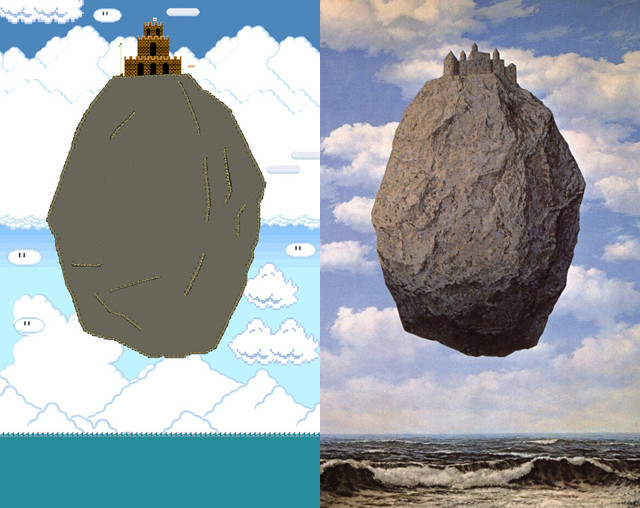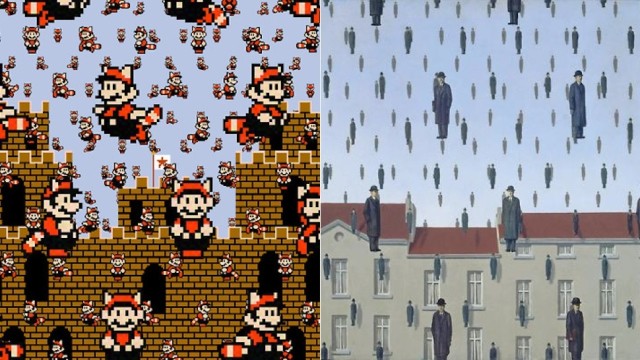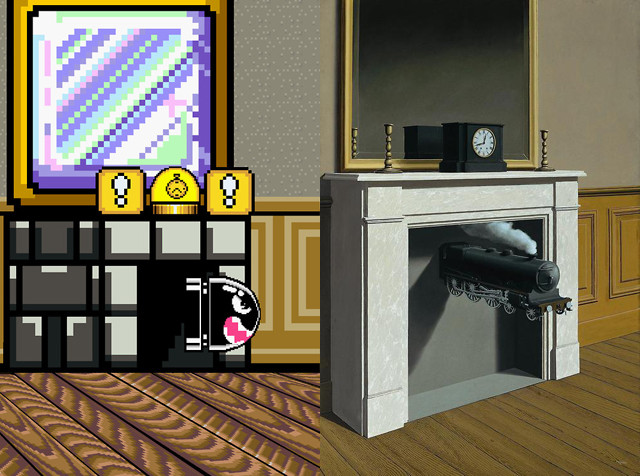Ayzenberg creative lead and filmmaker Mitch Cohen is running a Kickstarter to get his first feature film off the ground. The goal is to raise enough money to produce a proof of concept for Super Zero, a purely original take on the well-established zombie apocalypse genre. Cohen has agreed to document his experience with running the Kickstarter campaign on [a]list daily.
In this second article in the series, Cohen looks at challenges with getting visibility and dealing with momentum swings with a Kickstarter campaign. To read part one, go here.
 ‘Super Zero’ creator Mitch Cohen
‘Super Zero’ creator Mitch Cohen
I remember writing the first entry for this series with the [a] list daily like it was yesterday. Just an optimistic guy with a dream, a dream to make a simple film about an outcast gamer who builds insane weapons to annihilate hordes of ravenous zombies in order to save humanity. I would reach out to friends, family, and maybe a few kind strangers and raise the money to bring my little love letter to the “geek culture” community to life. Then off I went to promote my Kickstarter campaign while taking notes of my adventures along the way.
It is now a month later and with my fundraising campaign close to ending, I have stopped to share some findings before my I make the final push to hit my goal. If nothing else, this trial by fire has been a fantastic experience and a mix of every emotion imaginable.
So, what’s the biggest takeaway from my campaign. It was obvious.
Outside of the support and promotion you get from the ones closest to you, most of the world isn’t going to give a rat’s ass about you and your little Kickstarter campaign. This was a painful lesson to learn, but one that I have worked to change and maybe just in time, too.
To be clear, I’m not implying people are coldhearted jerks because they don’t care about my project or other even cooler projects on Kickstarter. Read the rest of this piece and you will see it’s been the exact opposite. The willingness of people to champion something they believe in and connect with is utterly overwhelming and has led to some amazing developments in my campaign. What I mean is that it’s incredibly difficult to expect complete strangers to stop and hear about a small creative endeavor that has no reference point to them. People, products, entertainment brands and everything on this planet are in a constant battle for time and attention. Your project may be the greatest thing a media outlet or an individual person has ever heard of, but they will never know because it just takes too much time and effort to read an unsolicited email or click on some random link to find out.
On a mass scale, websites and media outlets have to run stories that will get their content read and grow their audiences. Featuring a story about a Kickstarter campaign for a unique feature film might have been newsworthy in the past, but not anymore. Kickstarter and crowd sourced films have blown up the last 12 months and news outlets get inundated on a daily basis from everyone and their brother trying to get exposure. The exception to this rule is the new wave of star-driven Kickstarters. Those projects that come ready-baked with a well-known celebrity at the helm will absolutely get attention. (My thoughts on this phenomenon are another story)
Websites need to maximize their real-estate for the big entertainment stories and content they know will get eyes. They need to maximize their site traffic so they can see revenues from advertisers. The idea that a big website would run a piece on a Kickstarter campaign for a short film that’s only a proof of concept for a feature is pretty laughable.
The other route to raise awareness and hopefully raise funds for a crowd funded project is to target people directly, but that’s a long, difficult road. The most obvious place is to find them on social networks, but again the chips are stacked against the asker. Even with followers, friends, and connections who step in to help a Kickstarter project by posting about it amplifying it, the half-life of that message is extremely short and is drowning in a million other posts on someone’s feed. To further complicate things, not only does a user have to see your random post and click on it, they then have to leave that social network to go to the Kickstarter page to read an in-depth presentation of what you are doing. That’s a lot to ask, and it doesn’t even stop there. Even if they are actually into your film, they would have to still be willing to donate at that moment, because they may never come back or find their way back. There are numerous points for them to drop off or hit barriers on the obstacle laden path to backing your project.

It took less than a week for me to see this trend developing and understand why it was happening. I did ample research into Kickstarter and how to operate a campaign and where the pitfalls were. I knew I had to have thick skin and be tenacious. Call it being naive or too gung-ho, but I really thought it would be much easier to tap into a community that would rally behind the film. Kickstarter does a great job of showing off their success stories, but if you dig deeper you will find a vast graveyard of failed campaigns. Looking through other projects in my category – $20K+ budget short films – many of them never raised more than a couple thousand dollars or even less.
So at an early point in my campaign I took stock of my situation. There was still a ton of time on the clock, and I had actually banked a bit of money, but it also suddenly stopped coming in. I had two options, quit and call it a day or roll the dice and forge on to hopefully make it happen. I decided it was time to look ahead.
First, I have what I think is a truly innovative and accessible concept. Second, I intimately know my audience, what motivates them, and where to find them. Finally, I designed this film around celebrating geek culture itself, authentically embracing who we are and what we are passionate about. I have no doubt that I have something that has merit, and I was willing to bet others that feel the same would eventually discover this.
One week in and I was already changing strategies. If the big sites won’t feature me and the individuals can’t find me, whose left The answer came from one of the only emails to media outlets that I sent out where I received a response. Bloggers. Just like up and coming filmmakers, up and coming writers want to practice their craft and share their thoughts. And in the world of geek culture, blogging is huge and these people need interesting and relevant things to write about. Sometimes their content is in direct competition to the big media outlets, giving their own spin on what’s happening. Like any artisan, they are looking to establish themselves as different and in their world even it means deviating from the story everyone else is talking about.
This is my second takeaway. Don’t try and force attention, just talk to the people who want to listen. I acted on my hunch and reached out to many relevant bloggers who might be able to relate to what I’m doing through the lens of their own creativity. And luckily, a good many responded and were happy to oblige. Across the net there have been really enthusiastic and well-written posts on my project, and I have earned new backers directly because of it. I began seeing traction for this new strategy from an array of small outlets, and it still continues to grow. As press often does, some bigger outlets picked up on my project from coverage by smaller sites.
My campaign is again showing signs of life. There is light at the end of the tunnel.
So that’s my story to date. It’s been a little crazy, but I have yet to lose my mind. There are only six days left to make Super Zero happen and it can go either way. Research shows that many successful Kickstarter campaigns in my category receive 80 percent of their funding in the last 7 days, and up to 50 percent in the final 48 hours. I am actually trending a little above that, so fingers crossed. Stay tuned to see what happens.
About the Author
Mitch Cohen is creative lead in the original content group at Ayzenberg Group, working on live action videos and digital influencer campaigns. Cohen started in filmmaking as part of Chicago’s independent film scene, working with directors from the legendary Second City comedy troupe. Since moving to LA, he has sold one feature horror script and had two others optioned, and has had his short film “Peter’s Price” sold to renowned distributor Shorts International. That’s when he hasn’t been writing, directing and producing commercials and trailers for games such as Batman: Arkham City, Borderlands, Lollipop Chainsaw, Ghost Recon: Future Soldier and The Darkness 2.




 ‘Super Zero’ creator Mitch Cohen
‘Super Zero’ creator Mitch Cohen

